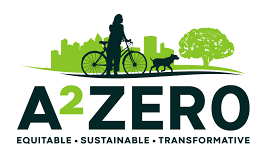By Kelly Malcom / U-M Health
I’ve read that polio has been around for thousands of years and we never reached herd immunity. Nobody knows whether we can catch COVID-19 again, and if you have immunity and you’ve had it for a year, then you’re back to where you started. I know people are concerned about vaccines but it doesn’t make sense to me not to get it.
You really don’t want to get COVID-19 because you don’t know what the effect is going to be. My brother died when he was 60, probably because of something involving polio. There were all kinds of secondary things those poor people went through again. And they were really surprised. We have no idea what the effects of this virus are and it’s going to be years before we do.
My feeling is this: If my having a vaccine and participating in the trial helps, hooray. It just doesn’t make sense to me not to.
Peter Higgins, M.D.
I see patients with Crohn’s and ulcerative colitis. This requires our patients to be on immunosuppressive therapy that really helps them, but also puts them at a certain amount of risk. As much as anybody, my patients really need a vaccine. Herd immunity from a vaccine protects the immune suppressed people. So the faster we can get there, the better off my patients will be.
MORE FROM THE LAB: Subscribe to our weekly newsletter

The other piece is that I do a lot of clinical trials involving people on immunosuppressive medication. So it seems fair for me to step up when we need 30,000 people to participate in these trials to get everything moving forward. The only way we’re going to get out of this is science.
I grew up hearing stories about how my mom’s whole family participated in the Salk trials because her brother had polio. I didn’t realize the analysis for the clinical trial for the Salk polio vaccine was done here at Michigan Medicine, which is still—to this day—one of the largest randomized clinical trial in human history, with over a million children.
Back then, the trial was inefficient because the infection rate was low and the hit rate was low. In my mom’s family, the 18-month-old got polio, but none of the other kids did. Considering they got it done was pretty amazing.
For this trial, you can’t say you can count on a benefit. But the big picture involves us moving forward and hopefully, one or more of these vaccines will come through and everybody can benefit.
Michael Mulholland, M.D.
I’ve been in practice for 35 years and dedicated my life to taking care of people. I practice as a surgeon, which means that I can only care for patients one at a time. So this is an opportunity to help many people at once, and I feel honored to be able to do that.
I’m going into this trial with my eyes wide open, and I realize what the risks are. But physicians are at risk just in the practice of medicine and have been forever. A century ago, doctors got tuberculosis and in the middle of the 20th century, they got hepatitis and some got AIDS. One of the parts of being a physician is that I’m aware of the risks involved with the trial and I’m OK with that.
People should participate in a clinical trial if they want to help someone else. I think many people are altruistically motivated—they don’t just care about themselves, they care about other people. This is a practical way to help someone you don’t even know.
When we have a vaccine that’s proven to work, everyone should take it, because it makes you and the whole world safer. If this works, it’ll let us get back to the life that we’ve missed. We’ll eventually be able to take off our masks, celebrate Thanksgiving as a family, go to a football game, be normal again.
The only part I hate is the idea of getting poked. When I was a kid, I hated going to the doctor for a shot and as an adult, I still don’t like getting a shot. But I’ll take it.
SEE ALSO: Seeking Medical Care During COVID-19
MAIN PHOTO: Matthew Wixson, M.D., during the clinical trial. Credit: Bryan McCullough, Hunter Mitchell
Photos by Bryan McCullough, Hunter Mitchell / Courtesy of U-M








